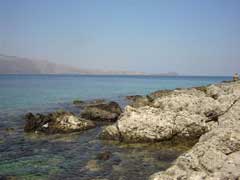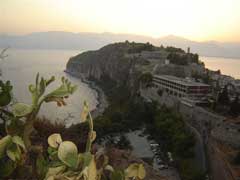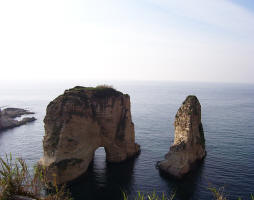 Egypt Water Report Q1 2010
Egypt Water Report Q1 2010
For millennia the presence of the River Nile has helped make Egypt one of the Middle East's economic superpowers, sustaining agriculture and providing drinking water to support millions of people. Now, however, the country is rapidly turning into a victim of its own success, as a swelling population and a growing economy make demands on water resources that are proving difficult to meet.
A recent report prepared for the Egyptian government forecast that Egypt would need water resources totalling around 86bn m3 by 2017 if it is to meet fast-rising demand, but the report estimates that the country is likely to have access to little more than 70bn m3.
The problem is being compounded by issues similar to those being faced by countries upstream such as Sudan, Ethiopia and Uganda. Increasing water demand there, resulting in a desire to extract more water from the Nile, may mean less water for Egypt and rising regional tensions. In an effort to respond to this bleak scenario, Egypt has embarked on a programme to overhaul and expand its creaky water infrastructure, and has restructured the government framework for the industry. International donor agencies are heavily involved in this, providing technical support and major project funding.
The creation of the Egyptian Water Regulatory Agency (EWRA) to supervise water and wastewater provision and the Holding Company for Water and Wastewater (HCWW) to enable the provision of water and sanitation services has created a more streamlined structure. This has been regarded as a necessary precursor to attracting more private investment to the water sector. A master plan for water and sanitation up to 2037 has been finalised. This prioritises potential water projects according to socio-economic need. Capital expenditure of over US$2bn will be ploughed into water supply, and more than US$3.5bn will go into wastewater between 2012 and 2017, HCCW says.
Until recently, private involvement in the industry has been limited to contractors taking advantage of opportunities opening up as new projects are rolled out. However, Egypt signed an agreement for its first public-private partnership (PPP) project in wastewater treatment in 2009 and has since announced two more. An Egyptian/Spanish joint venture has been awarded the contract to build and run the New Cairo Waste Water Treatment Plant. If these are regarded as a successful, others are likely to follow in wastewater and elsewhere in the water sector, given the government's urgent need for investment. International firms are keeping a close eye on developments, eager not to miss out on what appears to be a highly promising avenue for investment.
Meanwhile, Egypt is pushing ahead with a series of large undertakings in the sector. The most controversial of these is the US$70bn Toshka project, which is taking water from the Nile in the south of the country to turn nearby desert areas into a heavily irrigated oasis. The wisdom of spending so much on a project dependent on potentially fragile water resources has been questioned. A series of initiatives to upgrade and enlarge water, wastewater and sanitation services across the Nile Delta and in rural areas are less contentious. Their success is vital to the government's strategy for opening up new areas that can house the overspill from already congested urban areas. New Cairo, on the fringes of the capital, is a case in point.
While the state and international agencies are meeting much of the cost of these new projects, the consumer may end up footing the bill in the long term. This is a delicate area for the government, given that Egyptians are used to paying little for their water. Any price increases will need to be handled carefully if public unrest is to be avoided in a country where the poor are already feeling the pinch as a result of the economic downturn.
| Contact information | n/a |
|---|---|
| News type | Inbrief |
| File link | n/a |
| Source of information | Report Linker |
| Subject(s) | DRINKING WATER , DRINKING WATER AND SANITATION : COMMON PROCESSES OF PURIFICATION AND TREATMENT , FINANCE-ECONOMY , HYDRAULICS - HYDROLOGY , INFRASTRUCTURES , NATURAL MEDIUM , POLICY-WATER POLICY AND WATER MANAGEMENT , PREVENTION AND NUISANCES POLLUTION , RISKS AND CLIMATOLOGY , SANITATION -STRICT PURIFICATION PROCESSES , WATER DEMAND , WATER QUALITY |
| Relation | http://www.semide.net/countries/fol749974/country769281 |
| Geographical coverage | Egypt |
| News date | 30/03/2010 |
| Working language(s) | ENGLISH |
 you are not logged in
you are not logged in





